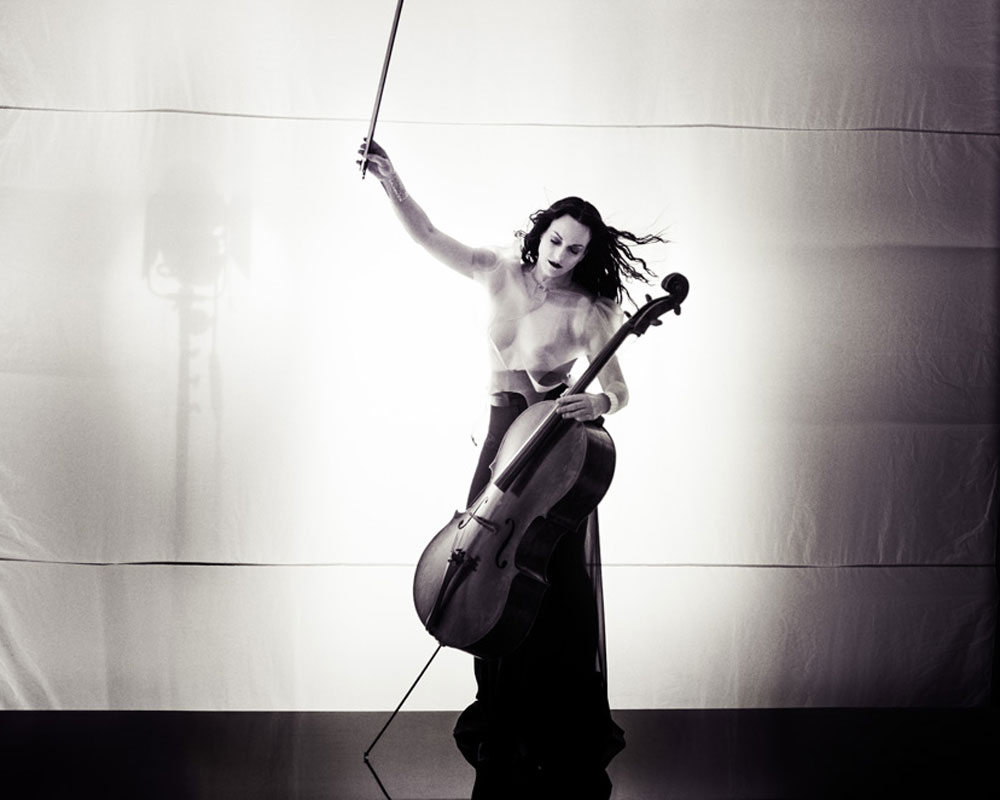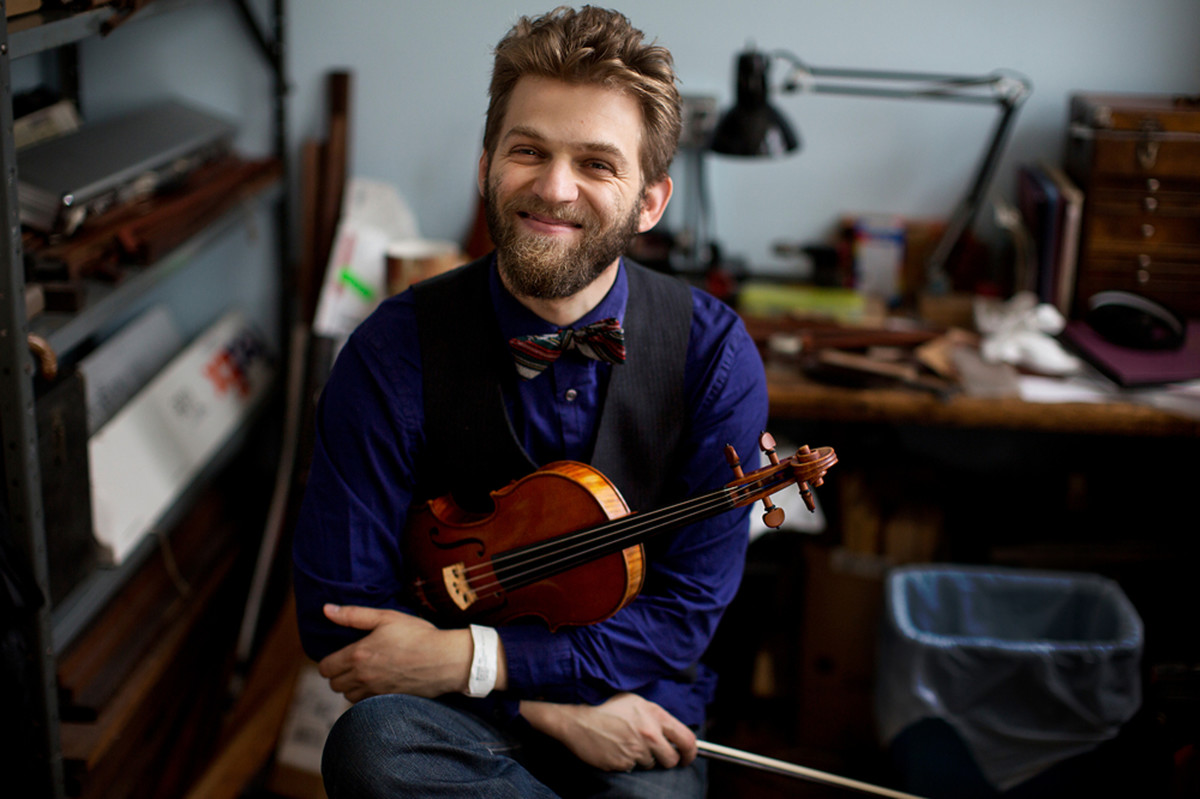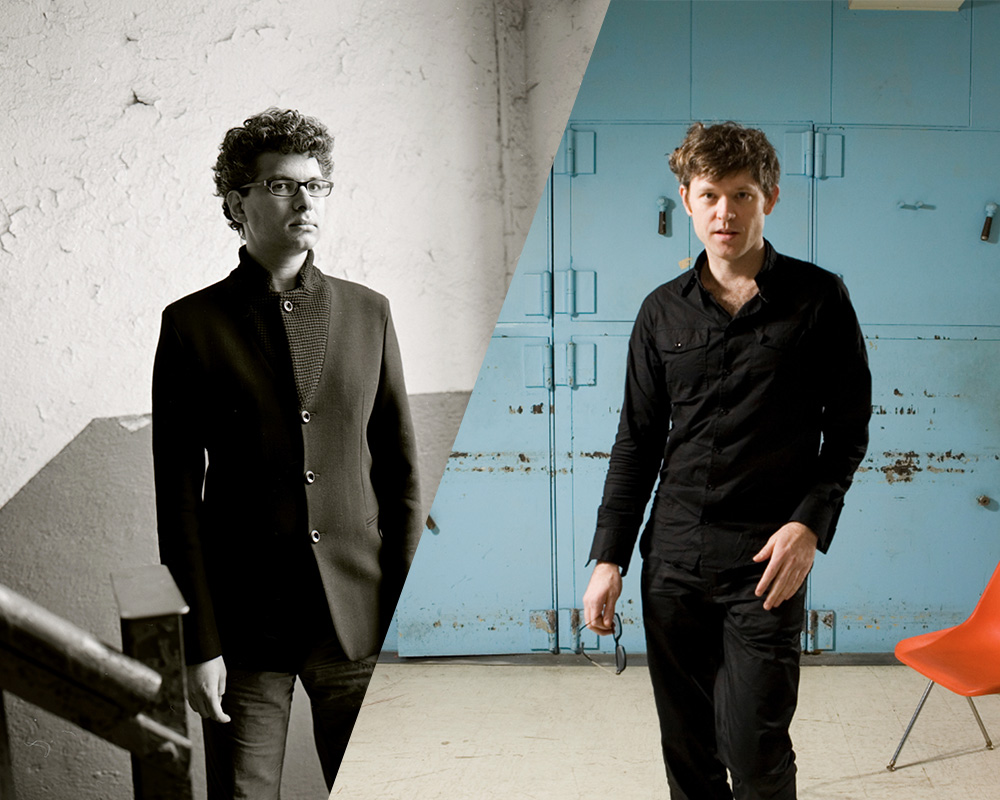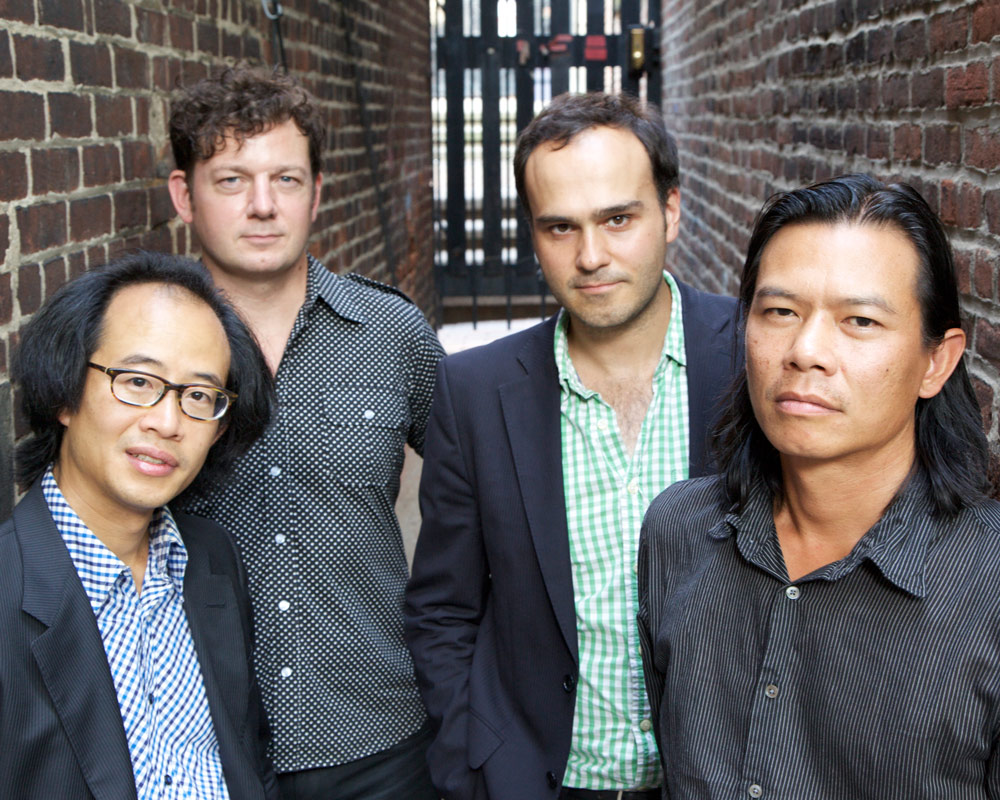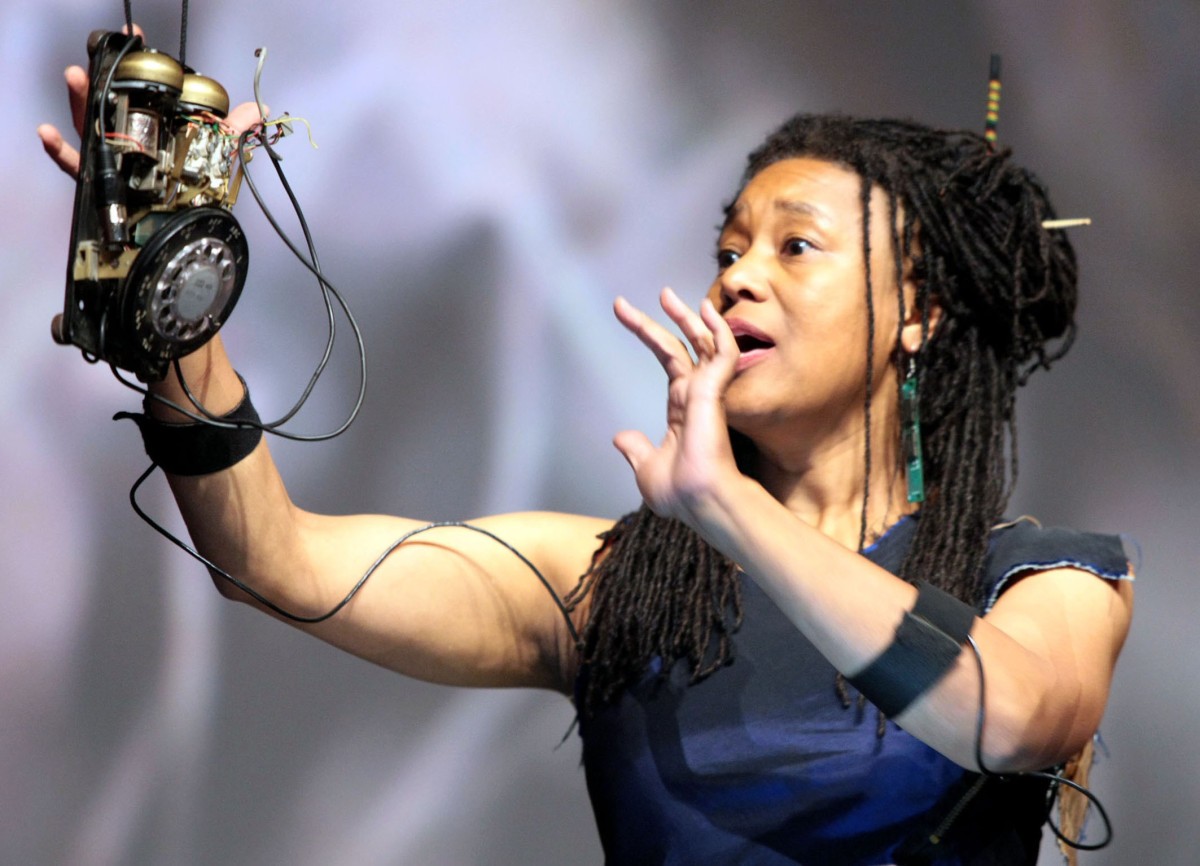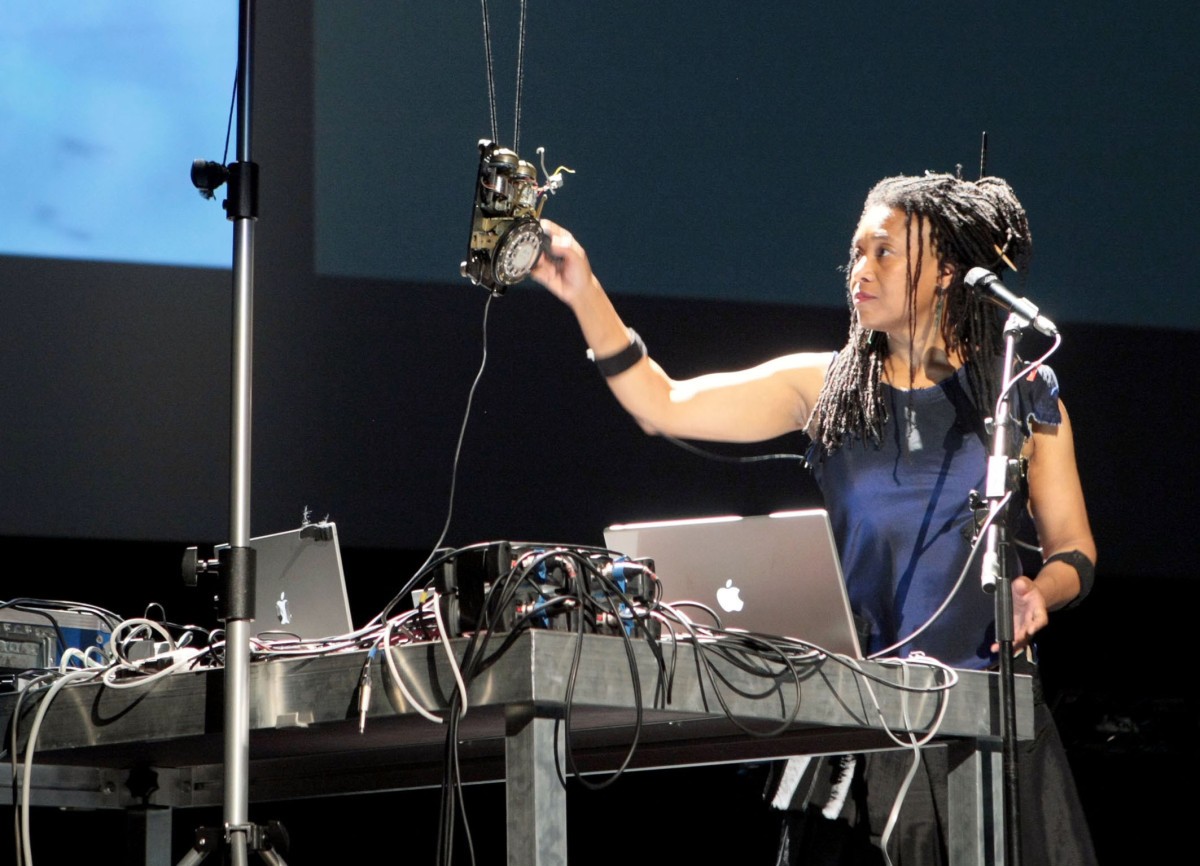New music series features Maya Beiser, Johnny Gandelsman, the Persona opera, Feldman’s six-hour string quartet, and Pamela Z.
The new music series, MIT Sounding, has announced its 2015 and 2016 schedule of innovative performances by some of the world’s leading artists. This year’s diverse offerings run the gamut, from Bach to Led Zeppelin and Morton Feldman, and from acoustic recitals to electronic manipulations of the human voice.
The fall season begins on Sept. 25, when classical cellist Maya Beiser reinterprets the rock canon in “Uncovered,” a treatment of music from Led Zeppelin, Jimi Hendrix, Janis Joplin, Nirvana, and others. October brings the first performance of a new opera, Keeril Makan and Jay Scheib’s reinvention of Ingmar Bergman’s classic 1966 film “Persona,” as well as a large-scale reprise of violinist Johnny Gandelsman’s single-evening performance of Bach’s complete Sonatas and Partitas. Next winter and spring, FLUX Quartet will present the long-awaited Boston premiere of Morton Feldman’s uninterrupted, six-hour String Quartet No. 2; and electroacoustic songstress Pamela Z will combine vocal virtuosity and technology in a solo performance of her own works.
The diversity of artists and styles reflect the theme of the series’ second season, “Re:Frames,” says series curator Evan Ziporyn, the Kenan Sahin Distinguished Professor of Music and faculty director of MIT’s Center for Art, Science & Technology (CAST), which sponsors the series. “We sought out artists who are reinventing performance and presentation,” he says. “We selected people who are innovating not just through new works and technologies but by reexamining — and reframing — our notions of genre and repertoire, translating between mediums, or radicalizing the performance experience itself.”
In “Uncovered,” Beiser will be joined by Amanda Palmer bassist Jherek Bischoff and Louis C.K. drummer Matt Kilmer. The concert, built around her acclaimed eponymous album, expands the concept of a “cover tune” to be far more than homage. Instead, as Ziporyn notes, “Maya’s treatments are so fully reexamined and recontextualized, they manage to evoke the raw power of the originals while being effective vehicles for Maya’s expansive personal authenticity.” Beiser, a classically trained cellist who plays a dynamic and eclectic repertoire, has devoted her career to redefining her instrument’s boundaries. Her performances include covers of classical and contemporary artists, as well as her own cello opera, “Elsewhere,” and have featured solos on film soundtracks by Tan Dun and James Newton Howard.
“Persona,” a bold new chamber opera based on Ingmar Bergman’s 1966 classic of the same name, and conducted by Ziporyn, previews in a workshop performance at MIT on Oct. 17. Composer Keeril Makan and director and librettist Jay Scheib — both MIT faculty — transplant the film’s famously provocative and complex depiction of human frailty, cruelty, and identity into operatic form. Bergman’s use of film as a physical medium in the original was a particular inspiration to Rome Prize recipient Makan and Obie Award-winner Scheib, whose concert mixes live performance with real-time and prerecorded video. The project, funded in part by the National Education Association and the Guggenheim Foundation, represents a transformation in Makan’s compositional style. The composer says, “My music combines the visceral excitement of post-minimalism with the sonic beauty suggested by new technologies, but realized acoustically. What is new in ‘Persona’ is a lyricism that is wide-ranging in its emotional content.” (The fully staged production premieres at National Sawdust in Brooklyn, N.Y., on Oct. 23 and 24.)
Russian-born violinist Gandelsman’s singular musical voice comes from the spirit of collaboration. As a member of Yo-Yo Ma’s Silk Road Ensemble and the string quartet Brooklyn Rider, he has distilled the creative sensibilities of a wide range of master musicians from around the world. At MIT last January, Gandelsman returned to the classical repertoire with an unadvertised recital, performing Bach’s Complete Sonatas and Partitas for Solo Violin to a small, but packed house. Gandelsman now takes his powerful interpretation of these landmark works to the concert hall, reprising his riveting performance for the first annual Terry and Rick Stone Concert in MIT’s Kresge Auditorium on Oct. 30.
Ziporyn says a common thread among artists in this year’s MIT Sounding is their ability to reframe the performance experience itself: “The listening experience is radically altered when Bach’s solo violin works are played straight through, as Johnny Gandelsman does. Bach didn’t conceive them with the idea that they’d be played in a set; in fact he composed them over almost two decades. Each one individually is a complete journey, a full meal. Grouping them together, as Johnny does, creates a different context, a larger narrative. It allows you to listen in a different, more architectural way. This is similar to the Feldman piece that FLUX performs, in that sense. Feldman’s early pieces were all extremely short; suddenly in mid-career, with little transition, he began writing in very long forms, from five minutes to an hour or longer. While his style didn’t change significantly, the duration did. Both Johnny and FLUX bring this same sense of immersion to the audience. You can lose your sense of where you are in the longer-term narrative and just be in it.”
FLUX Quartet will perform the highly anticipated Boston premiere of Morton Feldman’s epic six-hour uninterrupted String Quartet No. 2 at MIT in 2016. FLUX was the first group to undertake this late 20th-century masterwork of sustained, quiet intensity, developing new performance techniques to deal with the piece’s extremes of stamina and concentration. Violinist Tom Chiu founded FLUX Quartet in the late-1990s, cultivating an uncompromising repertoire that combines yesterday’s seminal trailblazers with tomorrow’s new voices.
Virtuosic singer, composer, electronic musician, media and performance artist Pamela Z is a true pioneer of live digital looping techniques and a tireless creator and inventor. She presents a program of her own works at Le Laboratoire, in Cambridge. With body sensors and custom hardware and software, she uses elegant physical gestures and intricate real-time digital processing to create complex sonic layers in solo works that combine experimental, extended vocal techniques, operatic bel canto, found objects, text and sampled concrete sounds.
MIT Sounding is an annual series presented by CAST, with support from the School of Humanities, Arts & Social Sciences, and the Music & Theater Arts program. The concert by Johnny Gandelsman is the first annual Terry and Rick Stone Concert. For the full schedule, tickets and updated information, please visit arts.mit.edu/sounding.

